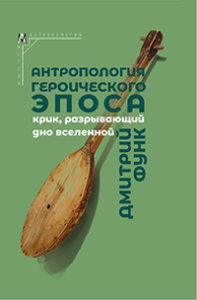Monograph ‘Anthropology of Heroic Epic. The Scream Tearing the Bottom of the Universe’
Key areas of research and development work of the laboratory for 2024-26
- Assessing the social impact of management decisions
The domestic practice of conducting such assessments (called ethnological expertise), despite the absence of a federal law, goes back decades. The experience accumulated by different teams of experts is in demand in different regions, mainly in the Far North and Siberia. At the same time, there are still a number of slow and difficult problems to be solved, in particular, in assessing the impact on the cultural parameters of society, which we plan to actively address in addition to the usual assessments of the impact on economic activity.
In the near future, we plan to publish Frank Vaclay’s “Social Impact Assessment. A Guide to Assessing and Managing the Social Impact of Projects‘ and implementation of applied projects’.
- Research on historical/social/cultural memory
The ‘memorial boom’ that began in the 1980s gave rise to a huge number of memory studies all over the world. To date, interest in the topic of memory in various fields of science has not only not waned, but continues to gain momentum, with dozens of scientific articles, collections and monographs published annually. In Russia, this topic was in such demand that the National Centre for Historical Memory was established. However, Russian researchers most often use either the optics of political science or the optics of history to work with this topic. We want to focus on the anthropology of memory. It is the anthropological optics that allows us to see how such factors as locality, regionality, gender aspect, peculiarities of the social structure of different societies, etc. affect the formation and transformation of memory. And it is the anthropological optic that allows us to see how memory becomes capital and how this capital is used in the formation and maintenance of old and new identities.
- Migration studies
In the last quarter of a century, Russia has emerged as an immigration host state. The rhetoric around immigration processes, in particular in terms of adaptation and integration of newcomers into local communities, has also developed. At the same time, there is no common understanding of both phenomena in the domestic context, which, of course, affects the implementation of national policy and migration legislation. Using qualitative methods of analysis, we expect to explore in depth the migration experience of newcomers, their experience of creating/developing urban spaces, their experience of adaptation and integration, and in general the cultural and social processes caused by migration, mainly in the Moscow region, but also in the North and Siberia.
- Anthropology of the heroic epic
The attitude of anthropologists to folklore in general has always been characterised, if not by complete scepticism, then at least by a condescending attitude as something in which one can, perhaps, try to look for some grains of ‘historical truth’, but no more. Folklore was understood almost exclusively as a recorded text.
The experience of working with living epic traditions shows that, as one of many socio-cultural phenomena, they can provide material for reflection on the nature of tradition and historical memory, on the social capital derived from involvement in these traditions, both by the narrators themselves and by the listeners, both by the inhabitants of remote villages and by modern politicians. The study of this phenomenon also provides vivid materials for analysing shamanism, since the connection between narrators and shamans in a number of Siberian indigenic cultures is incredibly close. Epic texts performed aloud or written down on paper by narrators themselves (this phenomenon is relatively recent, but in the second half of the 20th century it became extremely widespread) provide important materials for specialists dealing with the change of language codes and the social context of this phenomenon, as well as with the correlation between oral and written in culture in general. Being processed with the help of modern computer technologies, these records become a unique source for studying the language of folklore and, in general, a particular local language. And all this, not to mention the voluminous layers of representations and vocabulary hidden in these texts, which allow us to delve deeper into the perceptions of local ethnic groups about many socially significant cultural phenomena.
In the near future, we plan to finalise the author’s monograph by D.A. Funk ‘Anthropology of the Epic’.
- History of anthropological thought
In the 150 years that translations of the most important foreign books on ethnography/ethnology/anthropology have been published in Russia, just over 80 monographs have been published. This does not correspond at all to the abundance of literature that characterises this scientific discipline, nor to the tasks of training specialists, nor, in general, to the interest in cultural and social phenomena that exists in our country. With this in mind, we aim at a more active publication in Russian of classic anthropological works, previously unknown or little known to Russian readers, which are significant for understanding the history and directions of theoretical thought in this field of knowledge, including works on research methodology. While the selection of works for translation and publication is obviously oriented towards academic knowledge, we also take into account the needs of the Russian higher school, which lacks quality profile literature in the students’ native language.
The book series ‘Methods of Anthropology’ will be published from 2023.
The project will run for several years. The plan is to publish five to seven classic anthropological works each year.
- Linguistic anthropology
The ways in which people communicate in their social lives is one of the most complex, interesting areas of anthropology. The ethnography of speech (according to Dell Hymes), language planning (with special attention to corpus planning), the change of language codes, the consideration of communities as linguistic and not only, for example, as ethnic – these are just some of the directions that are planned to be developed on the basis of the Lab.
Publications
Benjamin Atwood Lee Whorf. Language, Thought, and Reality; trans. from Eng. by V.I. Frolov. – M.: Publishing Group ‘Alma Mater’; Alma Mater Publishing House, 2024. -334 pp. – (Methods of Anthropology). ISBN 978-5-904994-58-7
Hurston Z.N. Mules and men; trans. from Engl. by O.N. Isaeva. – Moscow: Publishing Group ‘Alma Mater’; Publishing House ‘Alma Mater’, 2024. – 287 pp. – (Methods of Anthropology). ISBN 978-5-904994-60-0
Funk D.A. Anthropology of the heroic epic. Scream, tearing the bottom of the universe / Dmitry Anatolievich Funk. – Moscow: Kultura Publishing House, 2024. – 566 pp. – (Methods of anthropology). ISBN 978-5-902768-11-1
Radin P. Cycles about Winnebago heroes. The study of indigenous literature / Paul Radin; trans. from English; ed. by V.I. Frolov. – Moscow: Publishing Group ‘Alma Mater’; Publishing House ‘Alma Mater’, 2024. – 283 pp. – (Methods of Anthropology). ISBN 978-5-904994-65-5
Events and activities
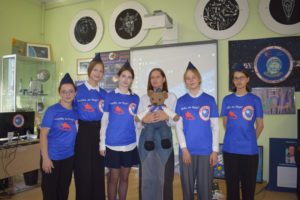
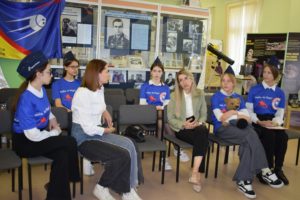 Valentina Tanailova at the museum in Korolev, 2024.
Valentina Tanailova at the museum in Korolev, 2024.
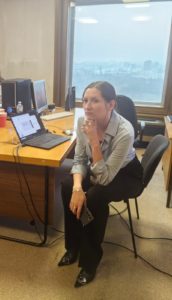
Valentina Tanailova at the conference at IEA RAS, 2024.

Valentina Tanailova at the international conference in Lisbon, 2025.
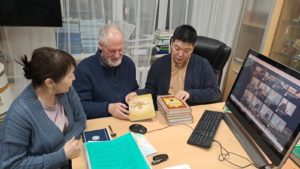
D.A. Funk with colleagues at the Olonkho Research Institute in Yakutsk, 2024.
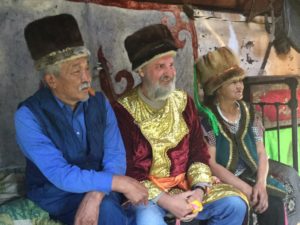
D.A. Funk with the narrator Kydrash Shumarov and his wife in the Altai Mountains

